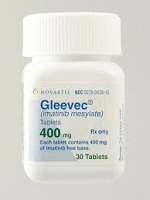 Switzerland-based Novartis ($NVS) sees Mumbai's Sun Pharmaceutical Industries meeting its February target start date for sales of generic Gleevec/Glivec (imatinib), putting the Indian drugmaker in the spotlight on the deadline.
Switzerland-based Novartis ($NVS) sees Mumbai's Sun Pharmaceutical Industries meeting its February target start date for sales of generic Gleevec/Glivec (imatinib), putting the Indian drugmaker in the spotlight on the deadline.
The expectation by Novartis in the Jan. 27 earnings call is of interest because of an earlier generic launch of Diovan that was repeatedly delayed. Sun set a a Feb. 1 launch date for Gleevec when it announced U.S. FDA generic approval in early December.
Novartis benefitted for several quarters in 2014 when then Daiichi Sankyo-owned Ranbaxy Laboratories repeatedly failed to get a generic version of Diovan (valsartan) on the market because of quality issues at its Mohali manufacturing facility. That facility as well as the company are now owned by Sun and it remains a troubled operating unit along with Sun's own plant in Halol, India--a facility that accounts for about 15% of its U.S. sales.
Sun reports financial third-quarter earnings in February. It is however expected to formally announce the launch before then or provide an update.
"In 2016, we expect genericization of Gleevec to start in February in the U.S., and December in Europe, contributing to the overall expected generic impact of $3.2 billion," said Harry Kirsch, Novartis' chief financial officer.
"Excluding the Gleevec generic impact, sales growth is expected to be in the mid-single digit, and core operating income is expected to be in the mid-teens. We expect 2016 to be a transition year, with very different dynamics during the different quarters and half one and half two, within the broadly in line guidance for the full year."
 |
| David Epstein |
David Epstein, division head of pharmaceuticals, also reiterated that the launch date is likely to be met.
"For Gleevec, we assumed, as you've pointed out, a February entry of the first generic. We believe they will be exclusive for that first six months, and our working assumption is there will be multiple entrants after that six months."
CEO Joe Jimenez spent quite a bit of time talking about the efforts to turn the troubled Alcon unit around generally.
But for Asia he largely bypassed a question by Citigroup analyst Andrew Baum on whether "overfilled channels or debts that were written off in Asia on the surgical business reflected mismanagement or issues in relation to the supply chain … and whether those have been corrected in terms of both the bonus structure for your employees within Asia or within the surgical business."
Jimenez said that "in terms of the bad debt in Asia Pacific that you mentioned regarding some equipment sales, that is now behind us, and we have, there is training, there's education, there's changing incentives that put that behind us also. So really it is ensuring that we have best-in-class customer service and for the most part, we're through the woods after the fourth quarter."
And Marietta Miemietz, an analyst with Primavenue, asked Epstein for an update on China and the far-reaching healthcare policy reform in play, including changes to prescription policies at state-run hospitals.
"China is putting in place a number of reforms across sectors, but in particular in healthcare, in order to both control spending, and to expand access to medicines across their populations," Epstein said.
"So there are positives and negatives. You're right, they changed the drug prescribing incentive, which slows growth. You asked whether that would be cyclical. I mean, obviously the impact at the beginning is greater than later on, because of an inventory draw that happens within hospitals. Having said that, there are multiple other changes to reimbursement policies in China, including more bidding on a local basis, which depending upon the product and the company, can either be an upside growth or a downside growth."
"Having said all of that, the Chinese market overall has clearly slowed. From about a year and a half ago, it's growing about 14% a year, and the overall market … is growing 4% a year. We're doing much better than that, but nonetheless, the mark to market has slowed and given the Chinese issues with their economic growth in general, I would not expect it to bounce back in the near term. But eventually, we all hope that the Chinese market economy does ultimately rebound."
Novartis does not break out China sales, but for pharmaceuticals Asia/Africa and Australasia saw a gain of 9% in the fourth quarter in constant currency.
- here's the Novartis earnings release